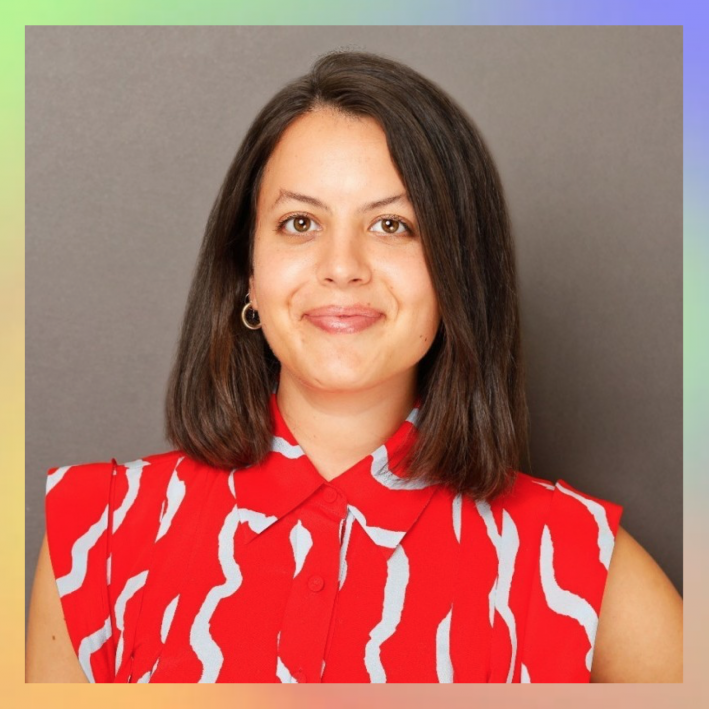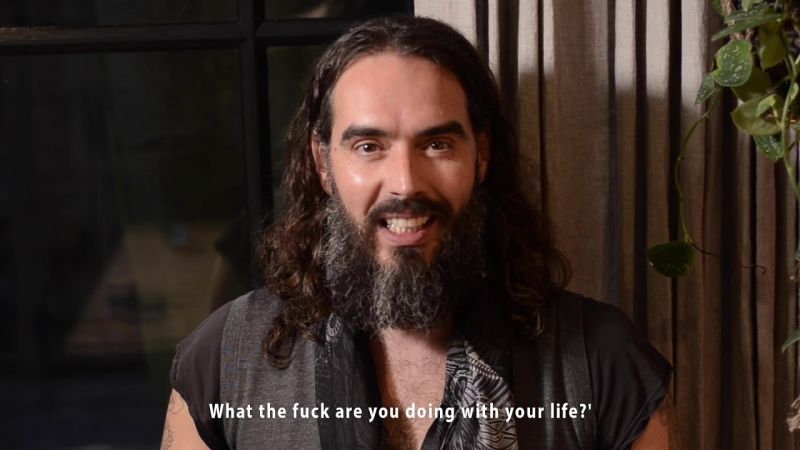Imagining a Positive Internet: An Interview with Lucia Knell
We spoke with Upworthy's Brand Director about curating a feed that enhances wellbeing and inspires change.
Written by Lauren O'Shaughnessy

01 Lucia Knell is the Brand Director for Upworthy and GOOD, a media platform dedicated to positive storytelling.
02 The internet has changed drastically in the last few months. Rising political, social and economic tensions - alongside an international pandemic - have forced people to reimagine their social media feeds. Platforms like Upworthy have a responsibility to shift and evolve with changing climates.
03 Lucia reminds readers to purge accounts that make them feel worse about themselves, indulge in those that uplift and inform, and follow platforms that bring a source of levity to your day.
Before we learn more about Upworthy, we'd love to chat about your experiences with digital information. What does your feed look like today? How would you define your relationship with social media?
Social media can be exhausting. Logging onto Twitter can feel like you're flooded with information being updated literally by the second. I've had to set some real boundaries around how often I'm opening up apps, and also be super conscious about the accounts I'm following (i.e. I've purged accounts that make me feel bad / depressed and replaced them with ones that empower me.)
How has this relationship changed over the last few years?
I think the intent behind platforms like Instagram started out pretty innocently. It was simply a place to share updates with your friends and family about happenings in your life. But in the past 5 years we've seen an increasingly strong dependence on the platform and the negative effects it can have on your day-to-day are strong. A lot of "influencer" culture has informed this shift. If you're constantly seeing people in what's perceived to be "better" situations than you, you start to internalize that comparison.
Was Upworthy's founding a direct response to rising rates of social media-induced strain?
Upworthy was founded in 2012 when Facebook was King (and Queen). The initial intent was actually to fight against information that was simply distracting (cat videos, viral #fail videos) and to instead direct people towards information that actually mattered, like social causes and systemic issues that needed to be talked about.
In recent years we've shifted our focus to infiltrate the newsfeed with headlines that make you feel less depressed. We're experts at the internet, and have adapted in a rapidly shifting landscape. We're using the deep knowledge we've cultivated over the past 8 years to help people feel informed, uplifted and empowered with solutions-oriented journalism, vs. just stories that just overpower and overwhelm.
How have recent algorithm changes either boosted positive media, or suppressed it?
During Covid-19, we saw an incredible spike in followers and engagement. People need good news. I believe the algorithm has recognized and rewarded our page, given the strong engagement rate and rate with which people share and forward our content.

Clean Up Your Feed with Russell Brand
Do you curate your social media feeds? Are there types of accounts that make you feel worse about yourself?
How has Upworthy's community responded to your mission?
People have sent us messages saying our page is the first thing they look at in the morning and the last thing they look at before they go to bed. The brand is providing a real, critical service to the online community when so much content is negative. People look to it for refuge from divisiveness, and recognize the power and value of being reminded of our shared sense of humanity, regardless of where you fall on the political spectrum.
Quarantine is coming to an end for many U.S. states, but for the past few months, most of us have existed entirely within our phones and laptops. What trends did Upworthy notice during social isolation & do we see any of these sticking around long term?
We gleaned a ton of insights about how folks were feeling when Covid-19 first hit based on what content they were engaging with most. Obviously a huge bucket was wanting to celebrate those on the front lines. Not just the nurses and doctors (thank you) but giving long-overdue recognition to the essential workers keeping our communities running. The pharmacists, the grocery stores clerks, the sanitation workers, the trucker drivers, etc.
We also saw a need for levity in a moment of darkness. Sharing memes and videos of the new reality of working from home, parents being 'stuck' with their kids and creative ways to deal with boredom resonated with many.
People needed stories of hope — folks recovering from Covid-19 and stories of the world coming together in trying times.
And people needed stories of the ways city governments, landlords and employers were adapting their practices to treat people with empathy during such a trying time.
The U.S. is in a state of unrest following unjust police killings and a long history of Black oppression. Social media advocacy has been an amazing tool for mobilizing communities and demanding change, but it can also be incredibly triggering and overwhelming. How is Upworthy handling these current events and being mindful of the Black community?
While mainstream media tends to cover 'looters' and damage to physical property, we are dedicating our platform to showing what the mainstream media is not — that most protests start peacefully until folks are provoked (often by violent resistance from the police.) We understand that the protests and rage are rooted in hundreds of years of systematic oppression, and recognize that it's our duty as a media platform to properly contextualize what's happening, rather than remaining “objective." We're using IG Stories to promote anti-racism resources, giving folks ways to donate to black-owned businesses and providing mental health resources for black folks.
Upworthy will also be supporting the Loveland Foundation, an organization founded by Rachel Cargle that provides the opportunity for healing to communities of color, especially to Black women and girls, through access to mental health resources. Through fellowships, residency programs, listening tours, and more, ultimately the foundation hopes to contribute to both the empowerment and the liberation of the communities they serve.
What advice would you give to someone who's feeling overwhelmed by their feed?
Take the time to do a social media 'cleanse.' Purge the accounts that make you feel worse about yourself and worse about the world, and give yourself the gift of consuming content that does the opposite. Indulge in the feeds that uplift and inform you. Follow accounts that feed your passions and hobbies. Follow accounts that make you laugh and that bring a source of levity to your day. Social media is so powerful and it's not going away anytime soon. It's really up to us how we choose to use it.
Lucia Knell is the Brand Director for Upworthy and GOOD, a media platform dedicated to positive storytelling reaching 100M+ people a month. In her role, Lucia builds sustained social impact programs alongside Fortune 500 companies, foundations, and nonprofits to authentically communicate their values to a social-first audience. She also advises on digital strategy for the company, and helped to grow Upworthy's Instagram following by 400% between 2019 and 2020.
Support our work
We’re on a mission to change how the world perceives mental health.



















